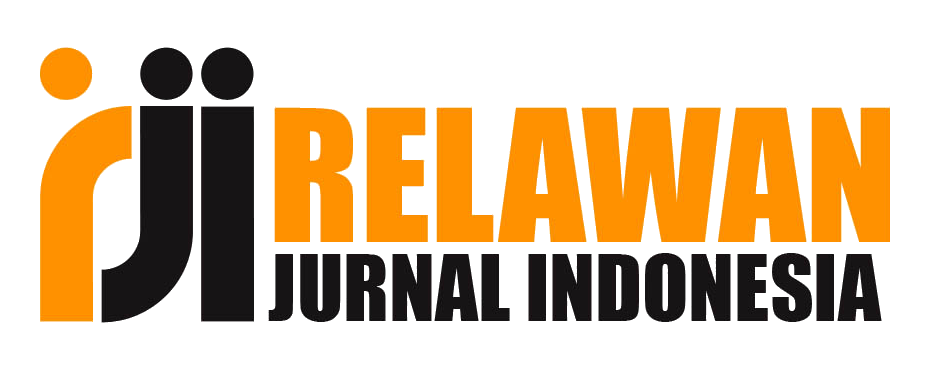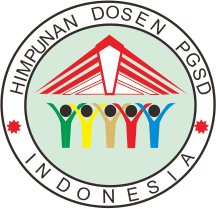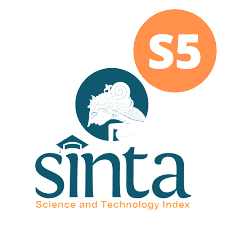THE DANGEROUS EFFECT OF ONLINE GAMES FOR STUDENTS OF UNIVERSITY
DOI:
https://doi.org/10.33061/js.v6i2.8219Keywords:
online game, education, GPA, Students, Addicted gameAbstract
This study aims to describe in general to the public about the potential dangers contained in playing online games. Playing games is very fun but with the same level of addiction as drugs.
The method used in this research is descriptive method. This descriptive study aims to create an accurate, factual, and systematic descriptive description of the nature and facts and the relationship between the phenomena studied using observational data collection techniques, questionnaires, and document studies. The number of respondents are fifty students as active PUBG online game players at the Information Technology Study Program, FKIP, Unisri.
The conclusion of this study is that the number of students whose value index is affected by playing this online game is 82%. Meanwhile, students whose score index was not affected by playing this online game were 17%.
References
Afrough, T., Rahimi, A., & Zarafshan, M. (2014). Foreign Language Learning Demotivation: A Construct Validation Study. Procedia - Social and Behavioral Sciences, 136, 49–53. https://doi.org/10.1016/J.SBSPRO.2014.05.286
Anh, P. Q. (2021). Media governance: managing online games seen from the perspective of the state in Vietnam. Heliyon, 7(1). https://doi.org/10.1016/J.HELIYON.2021.E06045
Aristoteles, Rini, P. S., & Poddar, S. (2020). The correlation between frequency of playing online games and teen communication on nursing students in STIKes Muhammadiyah Palembang. Enfermeria Clinica, 30, 1–5. https://doi.org/10.1016/J.ENFCLI.2019.11.014
Balakrishnan, J., & Griffiths, M. D. (2018). Loyalty towards online games, gaming addiction, and purchase intention towards online mobile in-game features. Computers in Human Behavior, 87, 238–246. https://doi.org/10.1016/J.CHB.2018.06.002
Coyle, T. R., Snyder, A. C., Richmond, M. C., & Little, M. (2015). SAT non-g residuals predict course specific GPAs: Support for investment theory. Intelligence, 51, 57–66. https://doi.org/10.1016/J.INTELL.2015.05.003
Dahabiyeh, L., Najjar, M. S., & Agrawal, D. (2021). When ignorance is bliss: The role of curiosity in online games adoption. Entertainment Computing, 37. https://doi.org/10.1016/J.ENTCOM.2020.100398
Ding, J., Shan, R., Chenmeng, M., Tu, M., Yu, Q., Kong, F., & Zhao, Q. (2021). Are online games a blessing or evil? The moderating role of self-worth. Thinking Skills and Creativity, 41. https://doi.org/10.1016/J.TSC.2021.100915
Drachen, A., Lundquist, E. T., Kung, Y., Rao, P. S., Klabjan, D., Sifa, R., & Runge, J. (2016). Rapid Prediction of Player Retention in Free-to-Play Mobile Games. http://arxiv.org/abs/1607.03202
Entwistle, G. J. M., Blaszczynski, A., & Gainsbury, S. M. (2020). Are video games intrinsically addictive? An international online survey. Computers in Human Behavior, 112. https://doi.org/10.1016/J.CHB.2020.106464
Esteves, J., Valogianni, K., & Greenhill, A. (2021). Online social games: The effect of social comparison elements on continuance behaviour. Information and Management, 58(4). https://doi.org/10.1016/J.IM.2021.103452
Fajnzylber, E., Lara, B., & León, T. (2019). Increased learning or GPA inflation? Evidence from GPA-based university admission in Chile. Economics of Education Review, 72, 147–165. https://doi.org/10.1016/J.ECONEDUREV.2019.05.009
Falout, J., Elwood, J., & Hood, M. (2009). Demotivation: Affective states and learning outcomes. System, 37(3), 403–417. https://doi.org/10.1016/J.SYSTEM.2009.03.004
Garena Free Fire Gameplay, Modes, Esports: 2022 Updated. (n.d.). Retrieved June 18, 2022, from https://trendblog.net/garena-free-fire/
Gong, X., Zhang, K. Z. K., Cheung, C. M. K., Chen, C., & Lee, M. K. O. (2019). Alone or together? Exploring the role of desire for online group gaming in players’ social game addiction. Information & Management, 56(6), 103139. https://doi.org/10.1016/J.IM.2019.01.001
Hassan, S. M., & Al-Razgan, M. S. (2016). Pre-University Exams Effect on Students GPA: A Case Study in IT Department. Procedia Computer Science, 82, 127–131. https://doi.org/10.1016/J.PROCS.2016.04.018
Heady, C., Morrison, M. M., & Vossler, J. (2018). Ecological Study of Graduation Rates and GPA in a Library Credit Course. The Journal of Academic Librarianship, 44(5), 642–649. https://doi.org/10.1016/J.ACALIB.2018.07.010
Huang, C. L., Yang, S. C., & Hsieh, L. S. (2019). The cyberbullying behavior of Taiwanese adolescents in an online gaming environment. Children and Youth Services Review, 106, 104461. https://doi.org/10.1016/J.CHILDYOUTH.2019.104461
Hyun, G. J., Han, D. H., Lee, Y. S., Kang, K. D., Yoo, S. K., Chung, U. S., & Renshaw, P. F. (2015). Risk factors associated with online game addiction: A hierarchical model. Computers in Human Behavior, 48, 706–713. https://doi.org/10.1016/J.CHB.2015.02.008
Kocak Alan, A., Tumer Kabadayi, E., & Cavdar Aksoy, N. (2022). Replaying online games for flow experience and outcome expectations: An exploratory study for the moderating role of external locus of control based on Turkish gamers’ evaluations. Entertainment Computing, 40. https://doi.org/10.1016/J.ENTCOM.2021.100460
Kowert, R., & Oldmeadow, J. A. (2015). Playing for social comfort: Online video game play as a social accommodator for the insecurely attached. Computers in Human Behavior, 53, 556–566. https://doi.org/10.1016/J.CHB.2014.05.004
Kusuma, G. P., Putera Suryapranata, L. K., Wigati, E. K., & Utomo, Y. (2021). Enhancing Historical Learning Using Role-Playing Game on Mobile Platform. Procedia Computer Science, 179, 886–893. https://doi.org/10.1016/J.PROCS.2021.01.078
Lassila, E. M. (2022). “Freeâ€-to-play game: Governing the everyday life of digital popular culture. Critical Perspectives on Accounting, 102434. https://doi.org/10.1016/J.CPA.2022.102434
Lestringant, P., Delarue, J., & Heymann, H. (2019). 2010–2015: How have conventional descriptive analysis methods really been used? A systematic review of publications. Food Quality and Preference, 71, 1–7. https://doi.org/10.1016/J.FOODQUAL.2018.05.011
Liao, G. Y., Pham, T. T. L., Huang, H. Y., Cheng, T. C. E., & Teng, C. I. (2022). Real-world demotivation as a predictor of continued video game playing: A study on escapism, anxiety and lack of intrinsic motivation. Electronic Commerce Research and Applications, 53, 101147. https://doi.org/10.1016/J.ELERAP.2022.101147
Martin, D. M., Jacobs, A. D., McLean, C., Canick, M. R., & Boomer, K. (2022). Comparing normative and descriptive methods for multi-criteria decision analysis: A case study evaluating wetland restoration opportunities in the Chesapeake Bay watershed, USA. Environmental Science and Policy, 132, 142–152. https://doi.org/10.1016/J.ENVSCI.2022.02.022
O’Sullivan, M. G. (2020). Descriptive methods for reformulation. Salt, Fat and Sugar Reduction, 147–165. https://doi.org/10.1016/B978-0-12-819741-7.00006-7
Sharma, S., Singh, G., & Sharma, R. (2021). For it is in giving that we receive: Investigating gamers’ gifting behaviour in online games. International Journal of Information Management, 60. https://doi.org/10.1016/J.IJINFOMGT.2021.102363
Shin, S. J., Jeong, D., & Park, E. (2021). Effects of conflicts on outcomes: The case of multiplayer online games. Entertainment Computing, 38. https://doi.org/10.1016/J.ENTCOM.2021.100407
Song, B., & Kim, T. Y. (2017). The dynamics of demotivation and remotivation among Korean high school EFL students. System, 65, 90–103. https://doi.org/10.1016/J.SYSTEM.2016.12.010
Spada, M. M., & Caselli, G. (2017). The Metacognitions about Online Gaming Scale: Development and psychometric properties. Addictive Behaviors, 64, 281–286. https://doi.org/10.1016/J.ADDBEH.2015.07.007
Tammy Lin, J. H., Bowman, N., Lin, S. F., & Chen, Y. S. (2019). Setting the digital stage: Defining game streaming as an entertainment experience. Entertainment Computing, 31, 100309. https://doi.org/10.1016/J.ENTCOM.2019.100309
Tan, W. K., & Chen, L. M. (2022). That’s not my fault: Excuses given by players exhibiting in-game intra-team aggressive behavior in online games. Computers in Human Behavior, 127. https://doi.org/10.1016/J.CHB.2021.107045
Thuillier, B., Valentin, D., Marchal, R., & Dacremont, C. (2015). Pivot© profile: A new descriptive method based on free description. Food Quality and Preference, 42, 66–77. https://doi.org/10.1016/J.FOODQUAL.2015.01.012
Vahidnia, F., Ghonsooly, B., & Shahriari, H. (2021). Development and validation of students’ attitudes towards teacher’s pet phenomenon scale in the higher education setting: Differences by levels of study and Grade-Point-Average. Studies in Educational Evaluation, 70. https://doi.org/10.1016/J.STUEDUC.2021.101000
Yadav, M., & BaniAta, H. (2013a). Factorizing Demotivation, Finding Motivation: A Constructive Approach to Quality Enhancement. Procedia - Social and Behavioral Sciences, 70, 120–130. https://doi.org/https://doi.org/10.1016/j.sbspro.2013.01.047
Yadav, M., & BaniAta, H. (2013b). Factorizing Demotivation, Finding Motivation: A Constructive Approach to Quality Enhancement. Procedia - Social and Behavioral Sciences, 70, 120–130. https://doi.org/10.1016/J.SBSPRO.2013.01.047
Downloads
Published
How to Cite
Issue
Section
License
Copyright (c) 2022 Jurnal Sinektik

This work is licensed under a Creative Commons Attribution-NonCommercial 4.0 International License.
Authors who publish this journal agree to the following terms:
- Authors retain copyright and grant the journal right of first publication with the work simultaneously licensed under a Creative Commons Attribution License that allows others to share the work with an acknowledgement of the work's authorship and initial publication in this journal.
- Authors can separately make additional contractual arrangements for non-exclusive distribution published by the journal (e.g., publish it in a book), with an acknowledgement of its initial publication in this journal.
- Authors are allowed and encouraged to send their work via online (e.g., in the institutional repositories or their website) after published by the journal.














